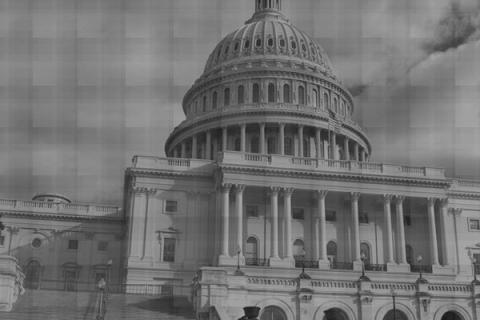Legend in Sacramento holds that during Gov. Jerry Brown's tenure in the late 1970s-80s, a delay in the state budget and an impasse between then-Gov. Brown and the state Legislature led to some creative negotiating.
Because pressure from the capital's press corps made it tough to parse actual negotiations from posturing, Brown proposed that legislative leaders bypass normal channels and meet instead at the Virgin Sturgeon, a watering hole and restaurant five miles away from the capitol, on the Sacramento River.
The meetings, held away from nosy reporters, helped usher a breakthrough in negotiations.
By comparison, the current negotiations over a state budget seem comparably infused with intrigue. Gov. Arnold Schwarzenegger has had a wary relationship with Democratic legislative leaders. And top Republican legislators have been critical of both their own party's governor and their counterparts across the aisle.
But these days, there's little need for Schwarzenegger to suggest relocation to the Virgin Sturgeon, or even his famed smoking tent outside the capitol. Because in an era of shrinking press, there are fewer reporters than ever to see that the state's governance is transparent, accountable and responsible.
The decline in capital press members is an obvious, ongoing trend, so much so that last year, the Sacramento Press Club made it the theme of one of their monthly luncheons.
Consider the last 12 months alone:
--The Stockton Record closed their Sacramento bureau and laid off the reporter there.
--A longtime Los Angeles Times reporter in Sacramento retired, and her position doesn't appear to be filled. The Los Angeles Daily News dropped its bureau entirely.
--The San Diego Union-Tribune, through a buyout, reduced its Sacramento bureau by half.
--Bay Area Newspaper Group reporter Steve Geissinger left his position as a Sacramento reporter, and hasn't been replaced.
That comes in addition to several earlier reductions in the press corps, with papers in cities such as Modesto and Bakersfield dropping their Sacramento bureaus. The San Francisco Chronicle notably added a staff member in recent months, but that was after reducing its capital bureau to one to follow policies affecting millions in the Chron's readership area.
The reason for shutting bureaus has more to do with the economics of newspapers these days than to a sense that state government isn't worth following. For a paper in another part of the state, maintaining a bureau in Sacramento is expensive, and for a manager with an admonition to cut costs, it's fairly easy to convince oneself that there's not enough bang for the buck in having a reporter in Sacramento - other than to, you know, fulfill any newspaper's primary mission of serving as government watchdog.
In the current climate, the lack of oversight is all the more glaring. The state's deep financial trouble - which it should be noted, is related to the economic downturn affecting newspapers - is bound to touch many Californians lives, whether it's solved with higher taxes or cuts in services.
And for the kind of wholesale reforms many observers believe the state will need to adopt to get out of its budget hole, voters will have to give their approval through ballot measures.
The dearth of explanatory journalism from Sacramento could leave those same voters with a critical knowledge gap when those ballot measures come up, and an uninformed citizenry is often no friend to complicated government reform ideas.
The situation brings to mind another story, older even than Jerry Brown and the Virgin Sturgeon. In the older fable, a group of mice agreed that a bell needed to be hung around the neck of the predatory house cat, but couldn't agree on who should hang said bell. These days, if one assumes lawmakers represent the cat and the mice the state's residents, then the bell, in the person of statehouse media coverage, might not be able to ring loudly enough to make a difference.
